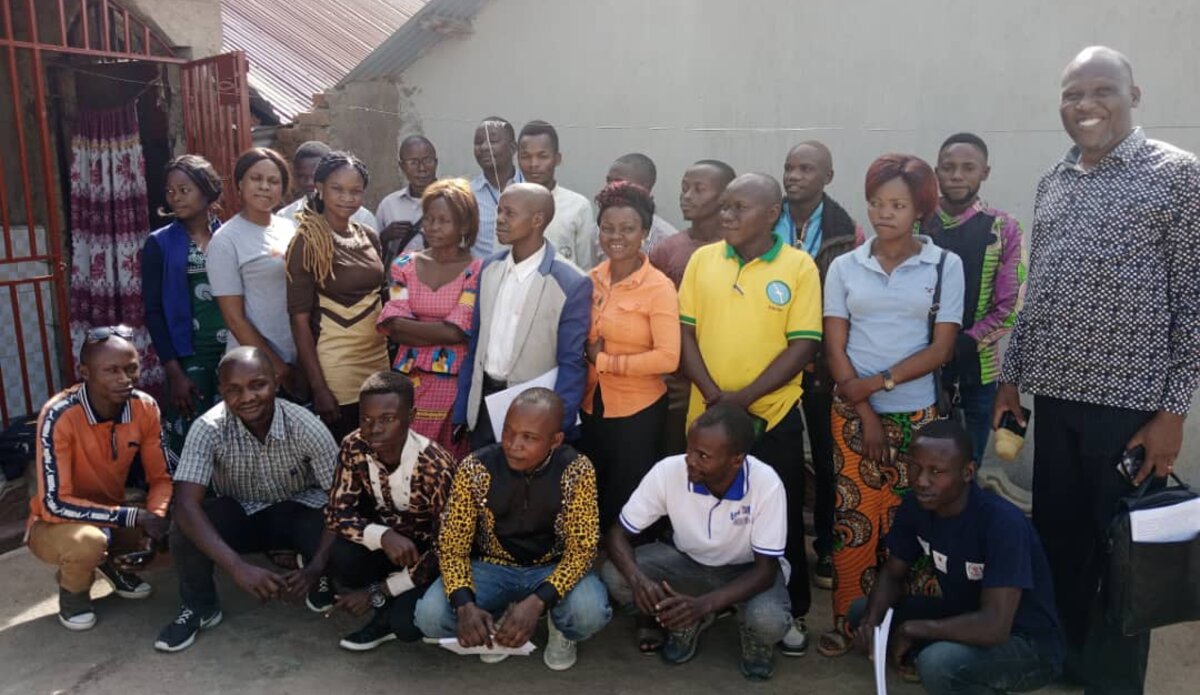Twenty-three journalists, including seven women, from the four community radio stations in the Walendu Bindi chiefdom, the territory of Irumu in Ituri, have benefitted from a training focusing on journalism in a conflict zone.
The training was organized by the United Nations Organization Stabilization Mission in the Democratic Republic of Congo (MONUSCO). It took place on last Friday and Saturday, March 3 and 4, 2022, in Aveba, a locality 75 km from Bunia, where the presence of armed groups remains a reality.
This support from MONUSCO through its Public Information section was a response to a need expressed several times both by local civil society and by the journalists themselves.
As in most remote areas of the country, the practice of the media profession in Aveba, Gety and Bavi, three localities of the six groupings in the Walendu Bindi chieftaincy which has some 300,000 inhabitants, is faced with many difficulties. Some of the difficulties are inter alia, the lack of human, material and financial resources; insecurity preventing journalists from carrying out their profession freely, and above all, the lack of training for journalists. For most of them, this job is the second or even the third professional occupation.
The training was among other things meant to help them gain basic knowledge in the practice of journalism, especially in the areas of information collection and processing, the importance of an editorial conference, the typology of journalistic formats, and the structuring of a journalistic “paper”.
The training also focused on writing techniques, the “10 golden rules” for journalists or the “tips and tricks” for handling sensitive information.
The participants were also subjected to numerous practical exercises during these two days of intense training, including the presentation of a news broadcast.
For MONUSCO, the capacity building also had another objective: to train these journalists so that they would be able to track down the rumors abounding on social networks.
“The role of a journalist is not to echo rumors or false information, but to tell the truth based on proven and verifiable facts”, the trainers underscored, drawing the trainees’ attention to their social responsibility, especially in areas as sensitive as those of Aveba, Gety or Bavi, where a rumor can easily be a spark to set ablaze the whole community.
Participants were also entitled to a half-day awareness-raising exclusively focused on MONUSCO’s mandate and the transition plan jointly developed by the Congolese government and the United Nations Mission in Congo, for a gradual and responsible exit of MONUSCO from the country, for misunderstanding or ignorance of MONUSCO’s role in the protection of civilians component of its mandate has sometimes been the source of many misunderstandings and even of an anti-MONUSCO sentiment in some localities in the country: Aveba and Walendu Bindi are an illustrative case. “Previously, we used to manage on our own, we would do everything in our power, no matter how…”
At the end of the two-day of training, participants expressed their gratitude to MONUSCO which enabled them to increase their skills and knowledge of the media profession. They pledged to no longer work like blind men without reference points, now that they have the tools that would help them to become media professionals.
“I am thankful to MONUSCO for the contribution it has made to journalists from the Walendu Bindi chiefdom through this training, thanks to which we now know things we ignored in the past. Before, we would commit several missteps, every day, without knowing it, because of ignorance. We will now put into practice what we have learned. I thank MONUSCO because, before, we didn’t know anything about the different journalistic formats, we did everything, no matter how, no one had ever taught us anything, we managed on our own,” said Vinciane Imani Mapenzi, a journalist for Pax Umoja community radio in Gety.
The major challenge now is the issue of providing these radio stations with adequate equipment to help them take off definitively.

